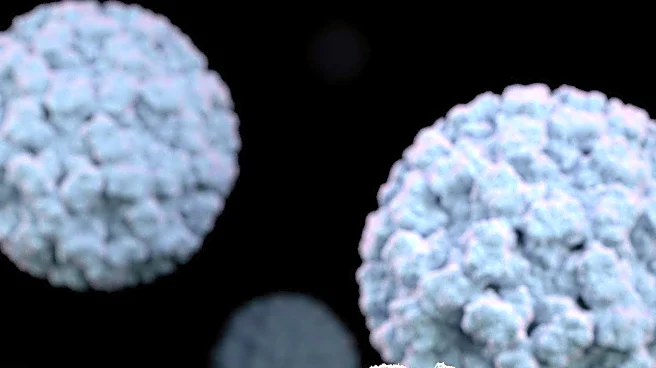What's Happening?
New research presented at the European Society for Medical Oncology conference suggests that mRNA COVID-19 vaccines may enhance the effectiveness of cancer immunotherapy. The study found that cancer patients
who received an mRNA COVID-19 vaccine within 100 days before starting immunotherapy lived longer than those who did not. The vaccines appear to stimulate dendritic cells, which in turn activate T-cells to attack tumors. While the research is promising, it is still in the early stages and has not yet been tested in a Phase 3 clinical trial.
Why It's Important?
This research could have significant implications for cancer treatment, potentially offering a new method to improve the success rates of immunotherapy, which currently benefits only a fraction of patients. By enhancing the immune system's ability to recognize and attack tumors, mRNA COVID-19 vaccines could become a valuable tool in oncology. However, the findings need to be validated in further clinical trials to determine their practical application in cancer treatment protocols.
What's Next?
A Phase 3 clinical trial is planned to confirm the initial findings and assess the potential of mRNA COVID-19 vaccines in cancer treatment. If successful, this could lead to new treatment strategies and influence future research on mRNA vaccines for cancer. The trial's outcomes will be crucial in determining whether these vaccines should be integrated into standard cancer care.









